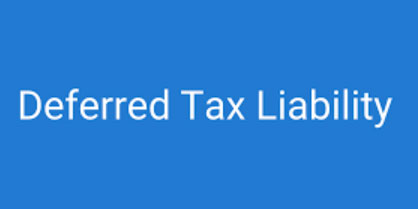So, you've decided to dip your toes into the world of investing. Congrats! But with so many options out there, it can be overwhelming to know where to start. Enter Exchange Traded Funds, or ETFs for short. In this beginner's guide, we'll break down everything you need to know about ETFs.
What Exactly Are ETFs?
Imagine a basket filled with different types of fruits. Each fruit represents a different type of investment, like stocks, bonds, or commodities. Now, imagine that instead of buying individual fruits, you can buy the entire basket with just one purchase. That's basically how an ETF works. It's a type of investment fund that holds a collection of assets, such as stocks or bonds, and trades on the stock exchange.
Why Choose ETFs?
ETFs offer several advantages for beginner investors. First off, they provide instant diversification. Remember that basket of fruits? By investing in an ETF, you're spreading your risk across multiple assets, which can help protect your investment from volatility. Plus, ETFs are typically more cost-effective than other types of investments, like mutual funds, because they often have lower fees.
How Do ETFs Work?
ETFs are traded on the stock exchange, just like individual stocks. This means you can buy and sell them throughout the trading day at market prices. But unlike mutual funds, which are only priced once a day after the market closes, ETFs give you the flexibility to trade whenever the market is open.
Types of ETFs
Exchange Traded Funds (ETFs) are incredibly versatile investment vehicles, offering options to suit various investment preferences and strategies. Here's a deeper dive into the different types of ETFs available:
Index ETFs
Index ETFs track a specific market index, such as the S&P 500, the Dow Jones Industrial Average, or the Nasdaq Composite. These ETFs aim to replicate the performance of the index they are tied to, providing investors with exposure to a broad range of securities within that index.

Index ETFs are popular among investors seeking diversified exposure to the overall market without having to purchase individual stocks.
Sector ETFs
Sector ETFs focus on specific sectors or industries, allowing investors to target their investments in areas they believe will outperform the broader market. For example, there are ETFs dedicated to technology, healthcare, financial services, energy, and many other sectors. Investing in sector ETFs can be a way to capitalize on trends and developments within a particular industry.
Commodity ETFs
Commodity ETFs invest in physical commodities like gold, silver, oil, natural gas, and agricultural products. These ETFs provide exposure to the price movements of the underlying commodities without the need to directly buy and store them. Commodity ETFs can be useful for diversifying a portfolio and hedging against inflation or geopolitical risks.
Style ETFs
Style ETFs focus on specific investment styles, such as value or growth investing. Value ETFs invest in stocks that are considered undervalued relative to their intrinsic worth, while growth ETFs target companies with strong earnings growth potential.
Bond ETFs
Bond ETFs invest in a diversified portfolio of bonds, providing exposure to fixed-income securities such as government bonds, corporate bonds, municipal bonds, and international bonds.
Bond ETFs offer investors a way to access the bond market with the liquidity and flexibility of trading on the stock exchange. They can be an essential component of a balanced investment portfolio, offering income generation and diversification benefits.
International ETFs
International ETFs invest in securities from countries outside of the investor's home country. These ETFs provide exposure to foreign markets and economies, allowing investors to diversify their portfolios geographically. International ETFs can focus on specific regions, such as Europe, Asia-Pacific, or emerging markets, offering opportunities for growth and diversification beyond domestic markets.
Dividend ETFs
Dividend ETFs invest in stocks that pay regular dividends to shareholders. These ETFs are popular among income-seeking investors who prioritize dividend income as part of their investment strategy. Dividend ETFs may focus on high-dividend-yield stocks, dividend growth stocks, or a combination of both, providing investors with steady income and the potential for capital appreciation over time.
Risks of ETFs
ETFs have inherent dangers that investors should be aware of, notwithstanding their benefits. ETFs are subject to market volatility, just like any other type of investment, so the value of your money may change. It's critical to understand that losses are a possibility, particularly during times of market weakness.
Moreover, not all ETFs are created equal. Some ETFs may have higher management fees or be more volatile due to the nature of their underlying assets. It's crucial to carefully assess an ETF's fees, performance history, and underlying holdings before investing to mitigate these risks and align with your investment objectives.
Tips for Investing in ETFs
Before diving into ETFs, here are a few tips to keep in mind:

1. Do Your Research: Take the time to learn about different types of ETFs and how they fit into your overall investment strategy.
2. Consider Your Goals: Think about what you want to achieve with your investments and choose ETFs that align with your objectives.
3. Diversify Your Portfolio: Don't put all your eggs in one basket. Spread your investments across different asset classes and sectors to reduce risk.
4. Keep an Eye on Fees: While ETFs are generally low-cost, some may have higher fees than others. Be sure to factor this into your investment decisions.
Conclusion
Exchange Traded Funds (ETFs) are a beginner-friendly investment option that offers instant diversification, low costs, and flexibility. You can begin creating a well-rounded investing portfolio that supports your financial objectives by learning how exchange-traded funds (ETFs) operate and by adhering to a few basic guidelines. Happy making purchases!




